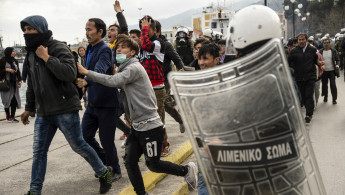Refugees and riot police clash as tensions reach boiling point on Greek Islands
Protesting refugees, including women and children, chanted "Azadi!" or "Freedom!" as they marched towards lines of riot police but they were met with baton blows, stun grenades and tear gas to stop them from reaching the town of Mytilene. According to eyewitnesses "babies and toddlers were among those tear gassed".
After a day of police violence, an estimated 40 refugees were taken into custody, but tensions remain at boiling point as a spat of racist attacks against refugees were reported following Monday’s protest and subsequent clashes.
The Islands leftist radicals have responded by organising night patrols of anti-fascists armed with clubs to deter further attacks against refugees.
Conditions on the Island have led to countless protests and confrontations between refugees, Greek authorities and hostile locals, including neo-Nazi groups in recent years, as the refugee population on the Island continues to explode.
The Moria camp is meant to house a maximum of 3,000 occupants and is home to an estimated 20,000 refugees – 75 percent of whom are said to be Afghans crammed in the camp and surrounding groves.
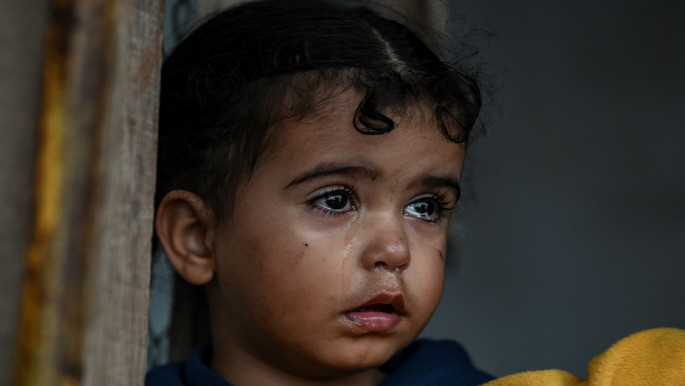 |
|
| Read also: Lesbos migrant camp suffering mental health crisis as children say they 'want to die' |
Living in the freezing cold with limited supplies, the camp is prone to breakouts in inter-refugee fighting as well as rioting and protests against Greek authorities.
Sexual assaults have also plagued the camp, with MSF (Doctors Without Borders) reporting a sharp increase in reported assaults on children, women as well as men.
NGO workers also reported that women were being attacked so frequently, or were so afraid that they began wearing diapers at night out of fear of being attacked if out alone to use the toilets.
Conditions continue to worsen by the day as refugees become increasingly desperate.
"Sometimes, especially at evenings and late nights, there are armed robberies in the vicinity of Moria in the jungle," says Haris (not his real name), a 31-year-old Afghan refugee, who is a resident of the Moria camp and volunteers with one of the many NGO's working on the Island.
"Some of the refugees have armed themselves with knives and have been threatening or even stabbing refugees and taking their money, mobile phones and other valuables. There's a lot of drug dealing or use of cocaine and Tablet-K here as well."
Overcrowding at the camp is so bad that Haris says he has seen refugees waiting in never-ending lines for the toilet, with children and the elderly "shitting their pants" due to the long wait.
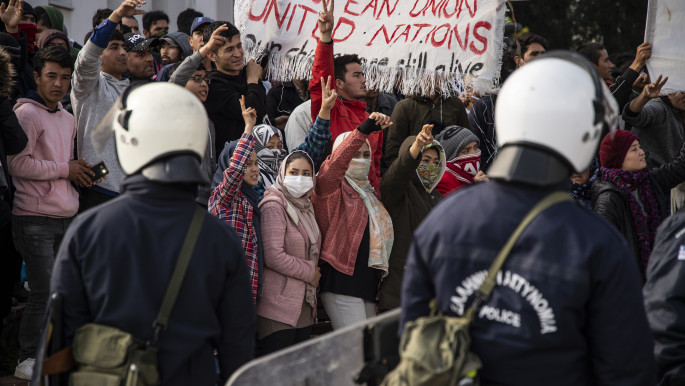 |
|
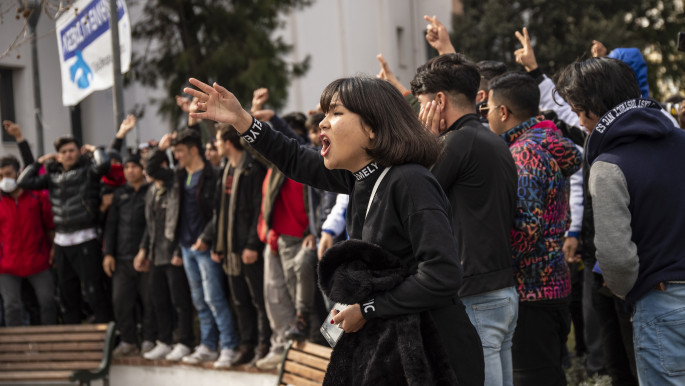 |
|
| Protesting refugees, including women and children, chanted "Azadi!" or "Freedom!" as they marched towards lines of riot police [Getty] |
Although the "refugee crisis" peaked in global attention between 2013-2016 due to the large arrival of Syrian refugees, migrant detention centres in Greece were already far beyond capacity, rife with abuse and refugee rebellions since at least the 1990s, according to local refugee rights activists.
Greek authorities have imposed a policy of driving out international activists. In recent years "first-entry" countries have continued to accept EU funds for hosting and processing refugees in accordance with EU immigration policies or Dublin laws, while enacting a policy of harsh deterrence by co-opting and then collapsing all solidarity efforts for refugees.
Read also: Greek island plans emergency meeting after 'overwhelming' influx of arrivals at Lesbos refugee camp
In recent months Greek authorities have conducted raids on nearly all refugee squats in Athens, quite literally enforcing a police occupation of the Exarcheia neighbourhood, the radical leftist hub of Athens.
Exarcheia, until recently was considered a unique place where refugees could avoid police harassment and the violence of fascist gangs.
Currently, there is only one refugee squat remaining, where there were over a dozen before a right-wing government takeover in July 2019.
Most of these refugee squats were organised through horizontal assemblies, leading to a burgeoning of refugee demonstrations and political projects between refugees and the Greek and internationalist radical left.
Instead of supporting these self-organised measures, the Greek government has been toying with the idea of "floating barricades" to block refugees from reaching Greek shores as yet another costly, inhumane deterrent that further jeopardises the lives of refugees making the arduous journey from Afghanistan, through Iran, Turkey and over the Aegean Sea to the Greek Islands.
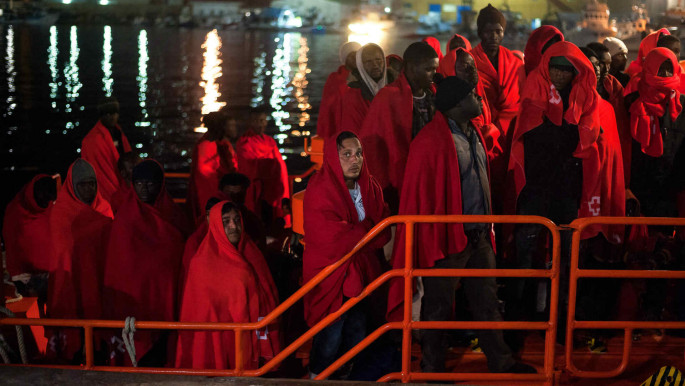 |
|
| Read also: By blocking them and punishing those who aid them, Europe is drowning in migrants' blood |
In 2016, the EU forced an agreement on Afghanistan where humanitarian aid money for refugees was made contingent upon accepting an unlimited amount of Afghan refugees – which is illegal according to international law.
Also within the EU-Afghanistan 'Joint Way Forward' agreement, a narrative was introduced where Afghans seeking asylum in Europe were compartmentalised into groups where some were no longer called "refugees" but referred to as "irregular" or "economic" migrants.
The downgrading of Afghans from "refugee" to "migrant" has allowed for the EU to circumvent international laws regarding the rights of refugees.
This change in narrative has loosened restrictions on EU deportations – allowing for quick and easy rejections of asylum cases of not just Afghans, but of Somalis, Eritreans, Nigerians and a similar approach has more recently been applied to Syrians.
The US military dropped more bombs on Afghanistan last year (7,423) than any time in the past decade, according to the US Air Force, yet EU and Afghan officials continue to claim that "Afghanistan is safe" for people to be deported back to.
Unexploded ordnances, from ground engagements like rockets and mortars have left scores dead in Afghanistan; 82 percent of casualties are from ERW, while 1,426 casualties in 2018 are a combined figure of IEDs attacks, ERW and mines, according to Mohammad Wakil Jamshidi, the deputy programme manager at United Nations Mines Action Service (UNMAS).
Within the raging war and pitched battles throughout the country between the Islamic State group, the Taliban and Afghan forces backed up by the US military, an enormous number of bombs and other munitions, like mortars, IEDs or bullets are left behind unexploded.
According to recent data released by UNMAS, humanitarian mine action actors have cleared more than 18 million items of explosive remnants of war or ERWs since 1989.
"We have cleared almost all of the ERWs left behind by the Soviets and the regimes that came after," says Jamshidi.
"But due to the ongoing fighting, even if the peace deal between the Taliban, the USA and the Afghan government were to happen tomorrow, civilians will continue to die for decades to come due to the amount of unexploded weapons of war left behind."
Read also: In Nangarhar province, Afghanistan, violence is committed by all sides
Not only has US President Donald Trump relaxed the rules of war in regards to airstrikes, he has gone to great lengths to attack the International Criminal Court, pardoning war criminals, and is now pulling out of commitments to international laws regarding the use of mines, which disproportionately harm civilians.
After nearly four decades of uninterrupted war in Afghanistan, the Bamiyan province became the first and only province in the country to be fully de-mined this past year.
According to a recent Gallup polling, a large number of Afghan's rate their life standards as the worst in the world, while recent reports on the mental health of children inside the Moria camp indicates a mental health catastrophe in which self-harm and suicide attempts by children had become shockingly common.
In Afghanistan more than 2,400 children were killed or injured just in the first nine months of 2019, "making it the deadliest conflict in the world for children," according to Amnesty International.
"Leaving your country due to war, violence, poverty, sufferings and deprivations and then all of a sudden ending up in camp like Moria is very heartbreaking, stressful and inhumane," says Haris.
"If it is for one or two days or weeks, I would say ok but now it's been months and years – this is inhumane and against human rights."
Mohammed Harun Arsalai, is a writer currently based in the Bay Area of California and cofounder of Documenting Afghanistan. Follow him on Twitter: @harunagain
Arash Yousufi, is an international activist and independent journalist from Afghanistan, reporting from Athens, Greece. Follow Arash on Facebook
